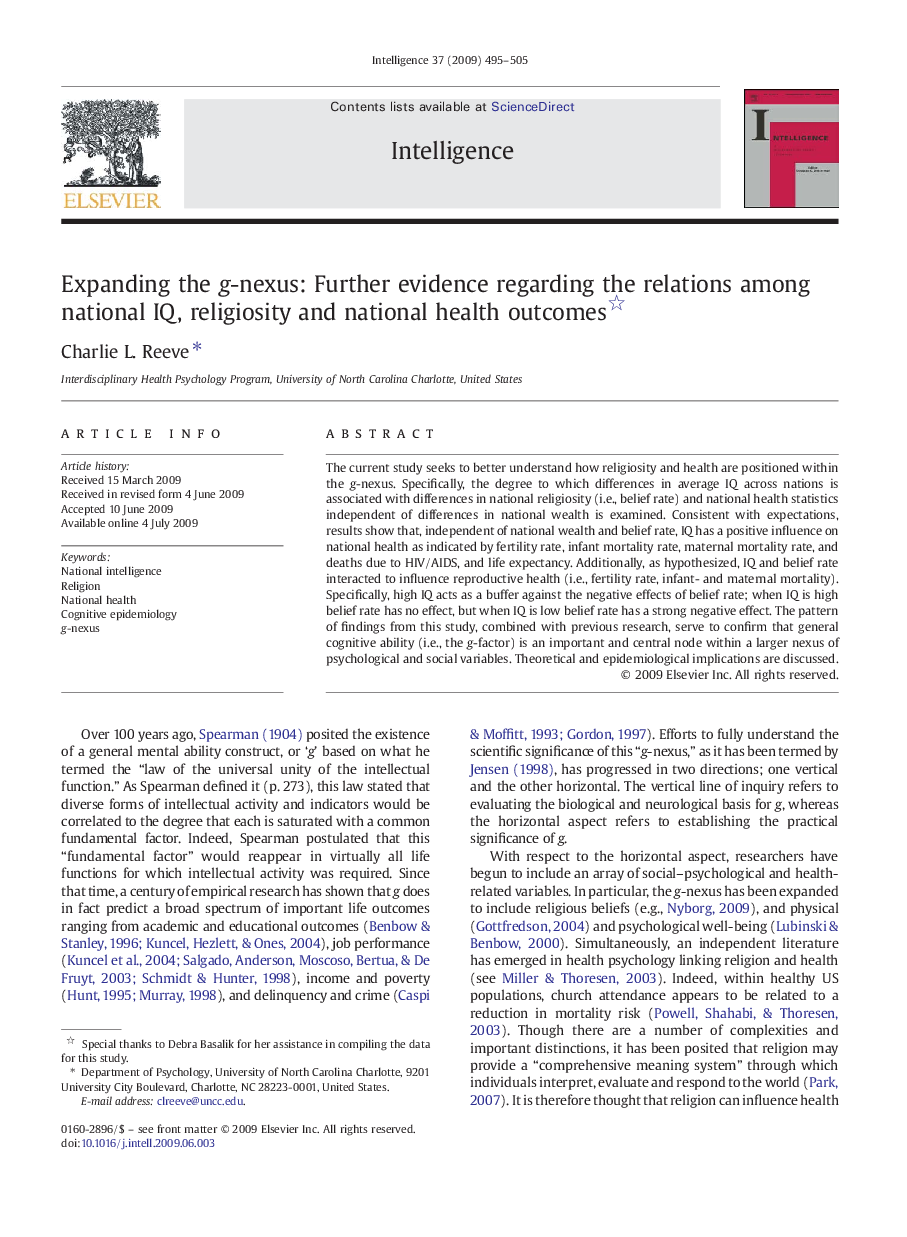| Article ID | Journal | Published Year | Pages | File Type |
|---|---|---|---|---|
| 929490 | Intelligence | 2009 | 11 Pages |
The current study seeks to better understand how religiosity and health are positioned within the g-nexus. Specifically, the degree to which differences in average IQ across nations is associated with differences in national religiosity (i.e., belief rate) and national health statistics independent of differences in national wealth is examined. Consistent with expectations, results show that, independent of national wealth and belief rate, IQ has a positive influence on national health as indicated by fertility rate, infant mortality rate, maternal mortality rate, and deaths due to HIV/AIDS, and life expectancy. Additionally, as hypothesized, IQ and belief rate interacted to influence reproductive health (i.e., fertility rate, infant- and maternal mortality). Specifically, high IQ acts as a buffer against the negative effects of belief rate; when IQ is high belief rate has no effect, but when IQ is low belief rate has a strong negative effect. The pattern of findings from this study, combined with previous research, serve to confirm that general cognitive ability (i.e., the g-factor) is an important and central node within a larger nexus of psychological and social variables. Theoretical and epidemiological implications are discussed.
